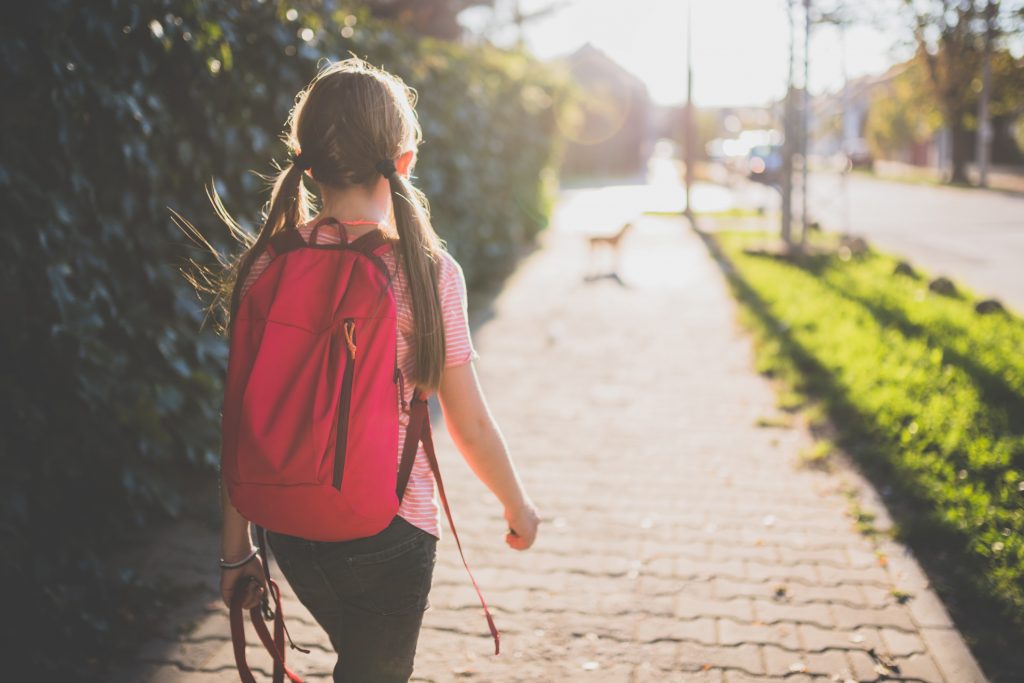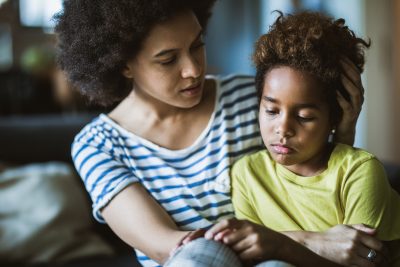“Mom! I was walking home from school and I was really scared because a lady kept asking me if I was OK and said to get into her car and she’d take me home!”
Just walking in the door from work, I had to suppress the urge to scream “WHAT?!?” at both she and my husband. Instead, I managed to calmly ask her to slow down and tell me the whole story from the beginning. My daughter, now a third grader, had been repeatedly asking to be allowed to walk home from school. It is only a mile. We have walked that way together several times and she knows the way. She had seen some junior high kids walking home. I think she wanted to prove she was a big kid.
She is generally a cautious child and it is important to me to foster her self-confidence. I had been hesitant, however, because it is a busy street. I was vaguely uncomfortable with her walking home by herself. So I had originally held her off until “you’re a bit older” and “you have a friend to walk with.” However, she apparently convinced my husband to let her do it. He anxiously explained that he had observed her cross the busy intersection. Then he monitored her as he drove home and started to walk back to meet her part way. He rationalized that both of us had walked home from school at that age. True, but somehow, things are very different now.
New Norms
Despite the fact that my husband and I grew up under the shadow of potential nuclear holocaust, the world seems scarier, more violent and unpredictable than when we were kids. Parenting norms also have changed since we grew up. Most kids have less leeway, less unstructured time, fewer opportunities to make mistakes and figure things out for themselves.
I want my daughter to be cautious, but not fearful. I want her to be self-confident, resilient and independent. And I know that is the best way I can continue to protect her from whatever comes her way. I also know that how adults react to anxiety-provoking events impacts how children think about and remember these events, fostering anxiety or resilience. I think about toddlers looking to parents’ reactions when they fall down to know whether they should cry or not. Or much more dramatically, the movie Life is Beautiful, in which a father protects his son from the horrors of survival in a concentration camp by pretending it is just a game.
She went on to tell me that a bus driver paused to ask her if she was OK, which was fine, but what freaked her out was the persistence of the strange lady asking her to get into her car. (That part freaks me out, too, but I am still working to suppress all the what-ifs and catastrophic scenarios and to stubbornly convince myself that this lady probably was just concerned).
A Parenting Challenge
So, I took a deep breath and reminded myself that this was a done deal and she was home safe. Knowing my take-home message made it easier. So I validated her feeling scared by the lady’s unexpected behavior, explaining that she probably was just noticing a kid doing something a bit unusual and trying to make sure she was OK. She did the right thing by walking away (thank goodness!), and that while I was confident in her abilities to walk home by herself, I was not so confident in others’ reactions, which is why I did not want her to do this on her own yet. She (and my husband) seemed OK with this and relieved not to be “in trouble” for pushing the limits. Whew! Another parenting challenge survived.
Fostering Resilience
Luckily, fostering resilience is usually much less dramatic. I struggle to let my daughter make mistakes and to figure out things on her own. Going out without a jacket on a brisk morning or reviewing spelling words before the test can be a bit challenging, but I remind myself the consequences are pretty immediate and relatively mild. She still often resists brushing her hair, which really frustrates me. However, listening to the daily litany of social squabbles without becoming anxious and wanting to insert myself into it is the most challenging for me.
I want her to be self-confident and assertive, but more importantly, I want her to be kind and considerate. I am trying to listen and understand the social dynamics, and trying to help her consider different points of view, but it’s walking a tightrope. And negotiating that is a story for another day. Just pause the daily craziness to stop and think about what qualities are most important to you for your kids to learn, and know that they are always learning from you. Having a “parenting mission statement” will make it easier for you to respond to the curve balls life throws.






Comments